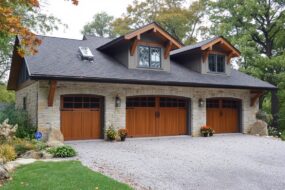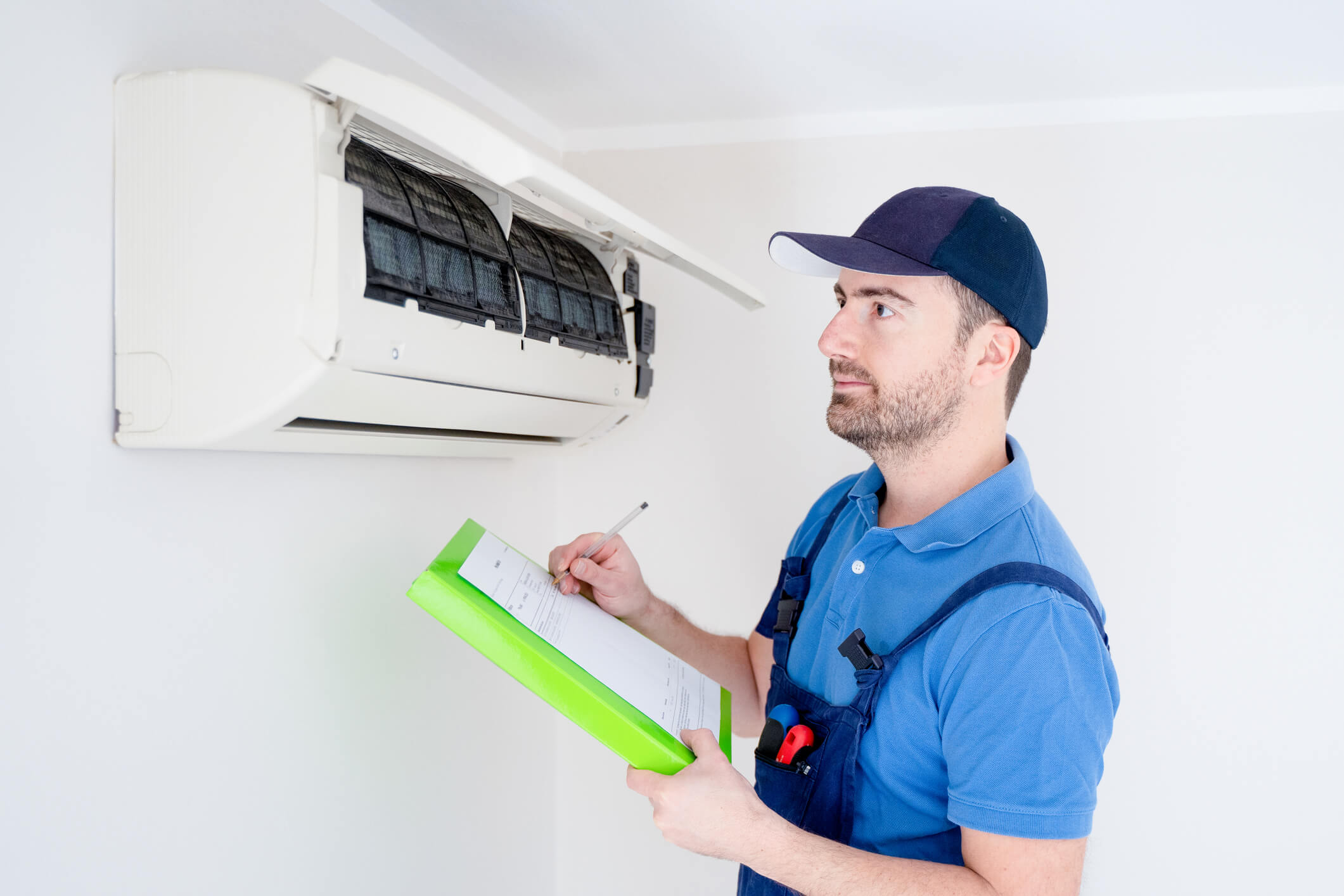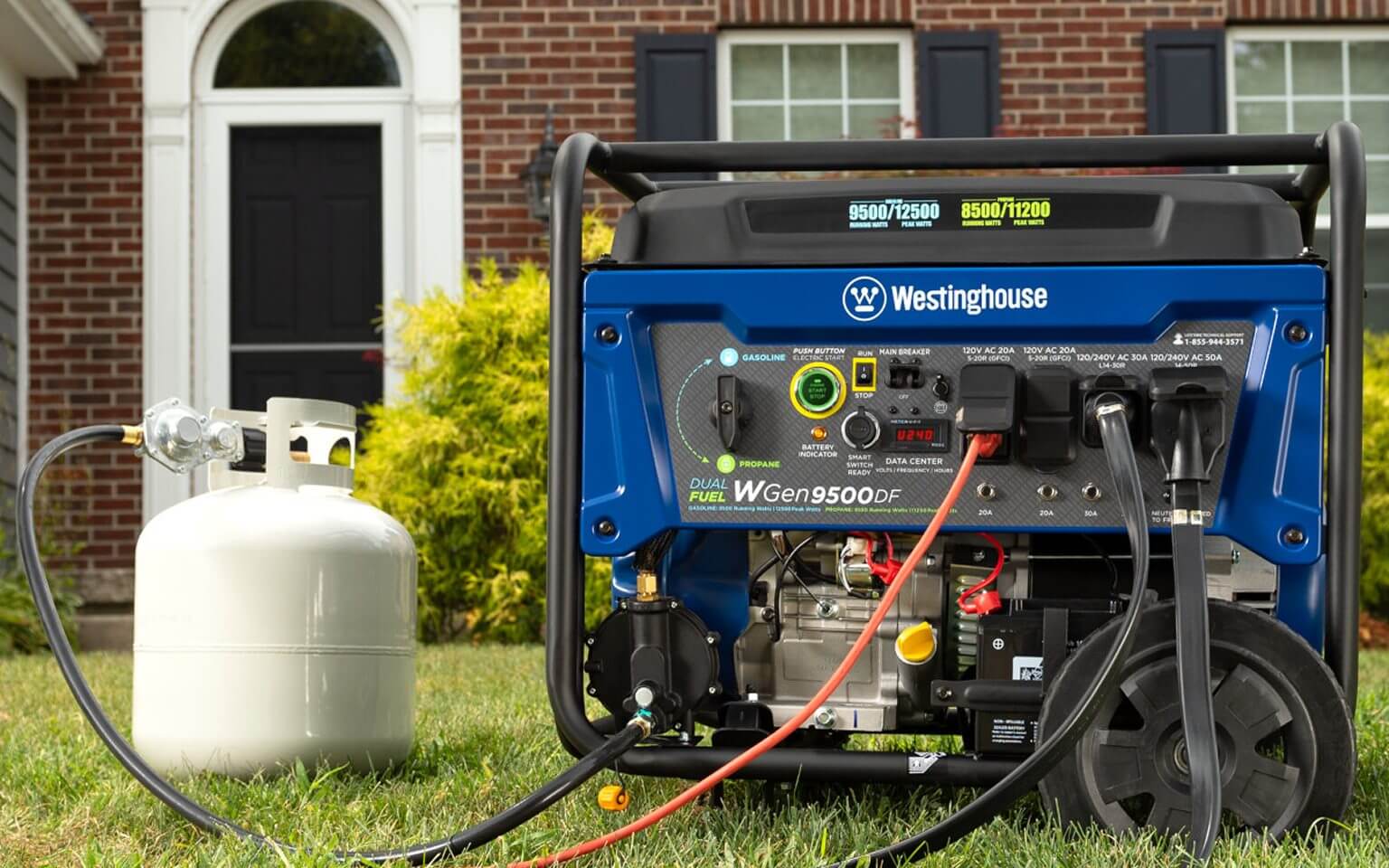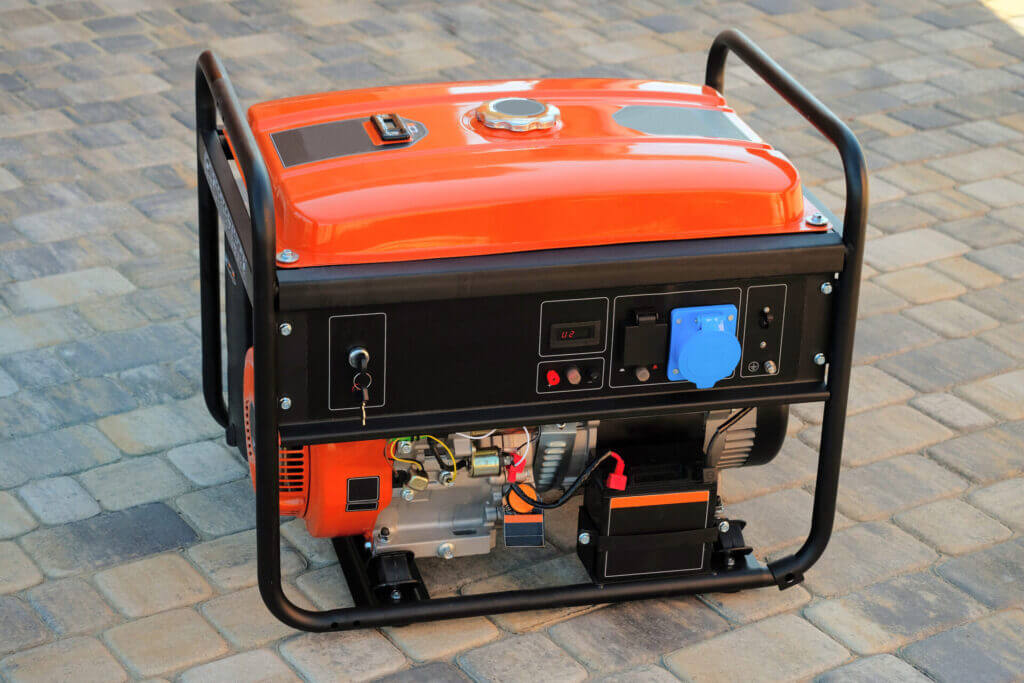Are you doing a garage doors project?
Modernize can pair you with three to four pros in your area, so you can compare options and save time and money.
How to Choose the Right Garage Door
Whether you need to replace a broken garage door or upgrade your current one, there are plenty of options to consider. This article will explain how to choose a new garage door based on factors like cost, style, materials, durability, and insulation.
When to Buy a New Garage Door
Faulty garage doors are a safety hazard that can damage vehicles or cause injuries to you or your family.
It’s time to purchase a new door if any of the following apply:
- The door no longer opens and closes as quickly as it used to.
- It’s in disrepair, which can lower your home’s value.
- It doesn’t have automatic opening and closing features.
- A lack of insulation has increased your heating or cooling bills.
- You want to improve your home’s aesthetics and resale value.
How Much Does a New Garage Door Cost?
Garage door costs vary based on size, materials, smart features, and whether the door includes windows. Prices typically range from $700 to $4,000, and insulation adds about $600 to the total cost.
Garage Door Styles
Garage doors come in a variety of modern and traditional styles, depending on how they open. Below is a breakdown of popular styles and their costs.
Sectional Doors
Sectional doors are the most common type in the U.S. They are divided into smaller sections that move upward along vertical tracks to the garage ceiling. This design fits many garage sizes and types, provided your ceiling is high enough.
Sectional doors are affordable, secure, durable, and customizable. However, installation, maintenance, and replacement can be more complex than with other styles. Expect to pay $750 to $2,500.
Tilt-Up Doors
Tilt-up doors consist of a single panel that tilts upward to open. They come in retractable and canopy styles:
- Retractable doors tilt up and move inside the garage.
- Canopy doors tilt up and extend outward, forming a canopy without entering the garage.

These doors offer limited customization and can include windows or screens to suit your needs. They are a budget-friendly option, costing $400 to $1,500.
Find the Right Contractor for Your Garage Doors Project
Whether you’re ready to begin your project now or need some expert advice, our network of contractors are here to help. With a few simple questions, we’ll find the best local professionals for you
Roll-Up Doors
Roll-up doors use horizontal slats that roll into a cylinder above the garage. Common in commercial and residential garages, they are ideal for spaces with limited ceiling height. While durable and quiet, they lack design appeal and cost $800 to $2,500.
Slide-to-Side Doors
For garages with lower ceilings, slide-to-side doors curve along the wall and open manually. These doors are affordable, ranging from $700 to $1,500, and easy to use. However, they are less secure than other options.
Side-Hinged Doors
Side-hinged doors, similar to barn doors, swing outward to open. They are suitable for garages used for storage with limited interior space. These doors can be manual or automated and are often made of durable materials like wood or steel. Prices range from $1,000 to $2,500.
Garage Door Materials: Pros and Cons
Garage doors are typically made of steel, wood, aluminum, or fiberglass. Below is a chart highlighting the advantages and disadvantages of each material:
| Material | Pros | Cons |
|---|---|---|
| Steel | Durable | Lacks insulation |
| Wood | Naturally insulating | Can bend, expand, and warp in hot or wet climates |
| Wood Composite | More affordable than wood, moisture resistant, and energy efficient | Not as visually appealing as natural wood |
| Aluminum | Lightweight, durable | Can be either expensive with a heavy, durable frame, or inexpensive with a frame that dents easily |
| Fiberglass | Affordable, lightweight, customizable | Doesn’t age well in wet or cold climates, less insulating |
Do You Need an Insulated Garage Door?
Insulated garage doors are essential for maintaining a stable temperature in certain situations.

You may need an insulated door if:
- Your garage is attached to your home and affects its indoor temperature.
- You use the garage as a workshop or recreation area.
- The garage stores temperature-sensitive items.
- You live in a region with extreme weather or temperature fluctuations.
How to Choose a Garage Door Based on Your Needs
Consider your garage’s primary function when choosing a new door. If you use it for parking or storage, prioritize durability and functionality. If it doubles as a family or workspace, focus on insulation and comfort. Also, consider your budget and style preferences to select a door that enhances your home’s curb appeal.
The Bottom Line
Choosing a new garage door depends on your garage’s purpose, your budget, and your style preferences. Whether it’s for parking, storage, or another use, the right door can boost your home’s functionality and curb appeal.
Find the Right Contractor for Your Garage Doors Project
Whether you’re ready to begin your project now or need some expert advice, our network of contractors are here to help. With a few simple questions, we’ll find the best local professionals for you
Reviews from Real Homeowners
Welcome to Homeowner Resources! We are the Modernize blog. Modernize pairs more than 3 million homeowners a year with pre-vetted contractors in their area. This blog started because we believe homeowners should know everything about their homes, from how their HVAC works to which front door colors they might love. On Homeowner Resources, you can find information on every part of your home, right down to how you can negotiate with contractors to get the best price. Here's more about the blog.
Need a contractor? Learn more about how Modernize finds the right pro for you.




